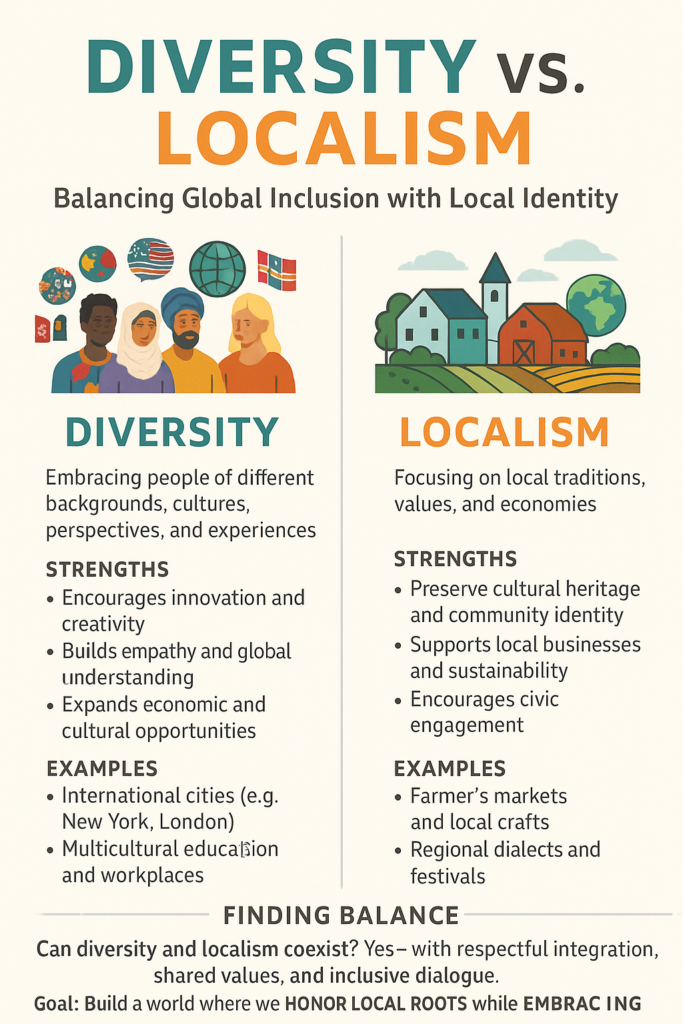
ARTWORK BY CHAT GPT
Diversity recognizes that each person brings different qualities, viewpoints, and contributions based on their unique combination of identities and experiences. In organizations and communities, diversity is often valued because it brings together varied perspectives, encourages innovation, enhances problem-solving, and better represents the broader population being served.
There are several significant benefits to keeping things local whether we’re talking about business, food, governance, or community activities, for example you reduce transportation distances which means lower carbon emissions; there is a smaller ecological footprint overall. It preserves unique local character and prevents homogenization.
Both localism and diversity offer important benefits, but they operate in different ways.
Economic Perspective:
- Local focus builds resilience through self-sufficiency and keeping resources within a community
- Diversity creates resilience through varied perspectives, approaches, and resource access
Cultural Impact:
- Local focus preserves unique regional traditions, customs, and knowledge
- Diversity brings in new ideas, practices, and innovations from outside
Research shows diverse groups often outperform homogeneous expert groups on complex problems. The most resilient systems often combine both localism and diversity – maintaining local distinctiveness while remaining open to diverse influences, perspectives, and exchanges.
As an ITRB member, I have only had one occasion where I did not get on an airplane to attend the annual meeting. And that one occasion was during the pandemic, when nobody was flying. I think there is no doubt that diversity is a valued commodity to have on ITRBs. We all come from a different set of experiences, failures and successes, which make us truly unique individuals. It’s not always best to keep things local.

